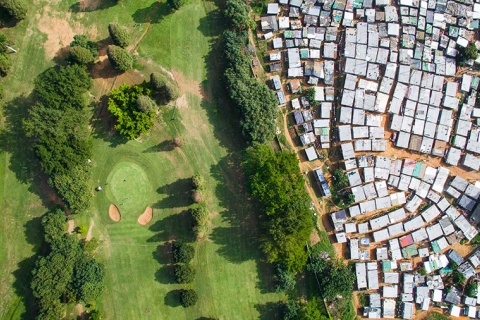In each country where the project has been implemented – Tanzania, Ghana and Senegal – local partners have developed, strengthened or scaled up approaches to support local women to enter the political space and participate meaningfully in local decision-making processes on land allocation and use.
While tailored to address local contexts and needs, the approaches developed in each country share similarities: None of them ‘reinvent the wheel’ but build on existing governance arrangements; they are bottom-up and participatory, involving community dialogue and capacity building exercises; and they all seek to ensure that decision-making bodies on land include a minimum number of active women members and promote local dialogue.
But the approach design was different to recognise the opportunities and gaps associated with each country’s land governance framework.
Tanzania and Ghana: local level governance fosters local ownership
In Tanzania, the law establishes local authorities with power to administer land at the lowest administrative level: the village. The village council and village assembly play a key role in local land governance – they have the power to allocate land and make decisions on land use.
In Ghana, land is governed customarily by traditional authorities, and land governance rules vary from one area to another. In the area where our project was implemented – the Nanton Traditional Area – community chiefs are given power to administer land.
In both countries, the local governance systems enabled our partners to embed their approaches directly at the community level and ensure local ownership.
In Tanzania, the Tanzania Women Lawyers Association (TAWLA) worked directly with village authorities to support the adoption of gender-sensitive village by-laws promoting the participation of women in village level decision-making processes. The process received good support from local communities.
In Ghana, NETRIGHT and the Grassroot Sisterhood Foundation (GSF) worked with local community chiefs – the lowest traditional administrative unit – to establish Community Land Development Committees (CLDCs). These committees are designed to support chiefs in making decisions on land and ensure that such committees had women members.
Senegal: challenges at municipal level
In Senegal, meanwhile, public land is managed by the local governments of municipalities – and community land is allocated at the local level through the municipality. A ‘municipality’ includes between around 30 and 60 villages; this is a higher ‘administrative level’ compared with land governance in Tanzania or Ghana.
The authorities administering land are the municipal council through the land commission – a local body supporting the council’s decision-making process.
Our partner IED Afrique worked in Darou Khoudoss to support the inclusion of women in the land commission and the adoption of a local land charter promoting women’s participation in land governance.
Working at the municipal level – rather than directly in villages – has proved more challenging in terms of local ownership. IED Afrique developed additional activities to ensure buy-in at village level. In particular, they collaborated with local women’ groups to make sure that the project was reaching women in villages.
In Tanzania and Senegal, land being governed by national laws makes it easier to replicate and scale up approaches. In Tanzania, TAWLA was able to reach all 64 villages in the Kisarawe District. Replicating the approach across different regions in Ghana would have meant adapting it to each regional context, which would have been cumbersome and resource intensive.
Takeaways for policymakers
Comparing land governance frameworks (PDF) in the three countries shows how their nature – and in particular the existence (or lack) of heavily decentralised power on land – determines, to a degree, the administrative level where the intervention takes place. This impacts how easily participatory and inclusive bottom-up approaches can be implemented.
Local authorities having power over land at the village or community level – as in Tanzania and Ghana – is a real advantage, as it allows approaches to be embedded in the very communities they’re trying to support. When land is governed at a higher administrative level – as in Senegal – additional efforts and resources are often needed to ensure local ownership of the approach.
In wider terms, my sense is that the more decentralised a land governance framework, the better for democratic, participatory processes to take place and ultimately, for how local women’s voices can be reflected in decisions made on land administration. This should be kept in mind by governments undertaking land governance reforms.
This blog was originally posted on the IIED website and is the fourth blog in a series looking at ways to strengthen women’s access to and control over land in Africa.
































